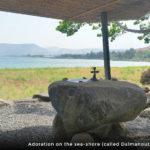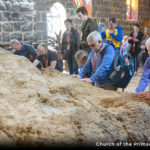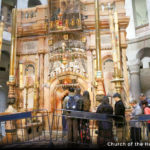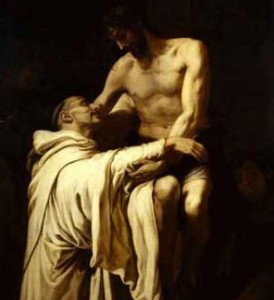Podcast: Play in new window | Download (Duration: 11:08 — 7.7MB) | Embed
Subscribe: Apple Podcasts | Spotify | Amazon Music | Android | Pandora | iHeartRadio | JioSaavn | Podchaser | Gaana | Podcast Index | Email | TuneIn | Deezer | Anghami | RSS | More
 In this episode, we discuss the reason we have named this a “Trinitarian” pilgrimage. We also discuss why this pilgrimage is “in the company of Elijah”
In this episode, we discuss the reason we have named this a “Trinitarian” pilgrimage. We also discuss why this pilgrimage is “in the company of Elijah”
Make your way through the Holy Land to experience Him, follow in His footsteps, and see Him in the works He performed – your footsteps will become His. Celebrate votive Masses in the very places where these miraculous gifts became pages in the Gospel. See where He was back then, and feel how He is still there today!
Places we will visit:
Holy Land · The Negev · Ein Gedi · Jordan · Jericho · Nazareth · Mount Carmel · Stella Maris · Muhraka ·Carmelites · Tabor · Cana · Capharnahum · Mount of Beatitudes · Tabgha · Jerusalem · Bethlehem · Temple Mount · Mt. of Olives · Gallicantu · Via Dolorosa · Mt. Zion · Emmaus
In this episode:
Day1
Saturday, May 23 | Depart US
Departure for your overnight flights to the Holy Land.
Day2
Sunday, May 24 | Arrive Holy Land
Arrival at Ben Gurion Airport. We’ll be met by our representative. A luxury motor coach will transfer us to the Negev, 18 miles from Beer Sheva (Gn21:25), towards Arad (Judges 1:16) our destination. We will overnight in Kfar ha Nokdim a typical and original Bedouin Style Guest Rooms in the desert. Dinner, time for settling in, late Mass. Special readings adapted to Elijah in the desert.
Day3
Monday, May 25 | The Negev – Ein Gedi – Day of walk in the desert
After breakfast, the coach will leave us at the head of a trail for an hour walk. we’ll take a route in a magnificent rocky landscape, perfect to reflect on God the Father’s promises through his prophets and Elijah’s ministry (1kg 17). Mass in the wilderness (open air). In the afternoon, the coach will drive us on the Arava side (Ez47:8-12). Drive along the Dead sea to Ein Gedi, a beautiful oasis in the region were King David hid while fleeing Saul (1Sm24:2). Time of teaching and Scripture reading. We will meditate on Elijah and his encounter with God (1Kg 19: 1-14). Finish the day in the beauty of the desert. Dinner and overnight at Ein Gedi Hotel, few miles from Jericho.
A few words:
Dear Pilgrim, I invite you prayerfully to discern joining me in undertaking a once in a lifetime journey with a remarkable woman of faith, Sr. Magdalit of the Community of the Beatitudes. Her years of lived experience in Israel and leading pilgrimages throughout the Holy Land will avail us of unique opportunities for prayer, spiritual teaching, and fellowship. Together, we hope to lead you into a new encounter with the great mysteries of our faith and a renewal of your devotion to the Lord. Our eyes will see and our hands will touch the great marvels that live among the people and in the sacred geography on which God was born, walked, died and rose. I hope that the Lord calls you to join us.
In Christ,
Dr. Anthony Lilles








 In this episode, Dr. Lilles discusses the Fourth Mansions Chapter 3 part 1 of the “Interior Castle” which covers:
In this episode, Dr. Lilles discusses the Fourth Mansions Chapter 3 part 1 of the “Interior Castle” which covers: For other audio recordings of various spiritual classics you can visit the
For other audio recordings of various spiritual classics you can visit the 
 St. Bernard and “On Loving God” – The Mystery of Faith in the Wisdom of the Saints
St. Bernard and “On Loving God” – The Mystery of Faith in the Wisdom of the Saints 
